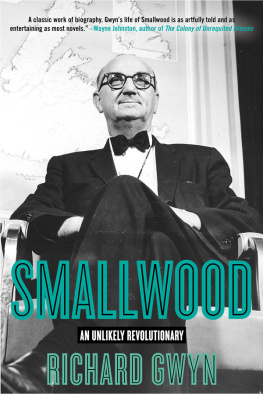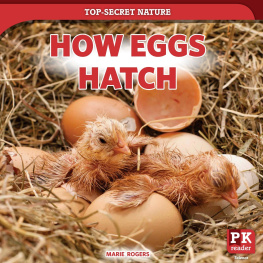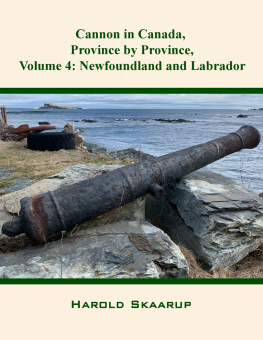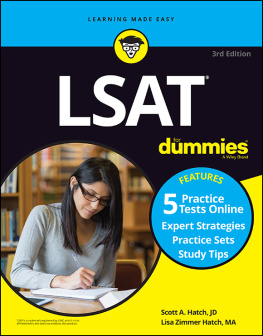_fmt.jpeg)
Escape
Hatch
Newfoundlands Quest for German Industry and Immigration,
19501970
Gerhard P. Bassler
Flanker Press Limited
St. Johns
Library and Archives Canada Cataloguing in Publication
Bassler, Gerhard P., 1937-, author
Escape hatch : Newfoundlands quest for German industry
and immigration, 1950-1970 / Gerhard P. Bassler.
Includes bibliographical references and index.
Issued in print and electronic formats.
ISBN 978-1-77117-613-2 (softcover).--ISBN 978-1-77117-614-9 (EPUB).--
ISBN 978-1-77117-616-3 (PDF).--ISBN 978-1-77117-615-6 (Kindle)
1. Industries--Newfoundland and Labrador--History--20th century.
2. Industries--Germany--History--20th century. 3. Germans--Newfoundland
and Labrador--History--20th century. 4. Immigrants--Newfoundland and
Labrador--History--20th century. 5. Newfoundland and Labrador--Emigration
and immigration--History--20th century. 6. Newfoundland and Labrador--
Economic conditions--1949-1991. I. Title.
HC117.N4B38 2017 330.9718009045 C2017-900358-5
C2017-900359-3
2017 by Gerhard P. Bassler
all rights reserved. No part of the work covered by the copyright hereon may be reproduced or used in any form or by any meansgraphic, electronic or mechanicalwithout the written permission of the publisher. Any request for photocopying, recording, taping, or information storage and retrieval systems of any part of this book shall be directed to Access Copyright, The Canadian Copyright Licensing Agency, 1 Yonge Street, Suite 800, Toronto, ON M5E 1E5. This applies to classroom use as well.
Printed in Canada
Cover design by Graham Blair
Flanker Press Ltd.
PO Box 2522, Station C
St. Johns, NL
Canada
Telephone: (709) 739-4477 Fax: (709) 739-4420 Toll-free: 1-866-739-4420
www.flankerpress.com
9 8 7 6 5 4 3 2 1

We acknowledge the [financial] support of the Government of Canada. Nous reconnaissons lappui [financier] du gouvernement du Canada. We acknowledge the support of the Canada Council for the Arts, which last year invested $153 million to bring the arts to Canadians throughout the country. Nous remercions le Conseil des arts du Canada de son soutien. Lan dernier, le Conseil a investi 153 millions de dollars pour mettre de lart dans la vie des Canadiennes et des Canadiens de tout le pays. We acknowledge the financial support of the Government of Newfoundland and Labrador, Department of Tourism, Culture and Recreation for our publishing activities.
The publisher gratefully acknowledges the financial support of the Gill Ratcliffe Foundation.
Contents
ABBREVIATIONS AND GLOSSARY
AA : Archiv des Auswrtigen Amts (German Foreign Office Archives), Bonn
AFE : Atlantic Films and Electronics
AHI : Atlantic Hardboard Industries
AVP : Alfred A. Valdmanis Papers, Montreal
BA : Bundesarchiv (German federal archives)
BRINCO : British Newfoundland Development Corporation
BSA : Benno Schilde Archives, Bad Hersfeld, Germany
CMIC : Canadian Machinery and Industry Construction Ltd
CNS : Centre for Newfoundland Studies Archives at Memorial University of Newfoundland, St. Johns.
DP : Displaced person
FRG : Federal Republic of Germany (West Germany)
GDR : German Democratic Republic (East Germany)
HHA : Hubertus Herz Archives, Kirchseeon, Germany
IRO : International Refugee Organization
MIAG : Mhlenbau- und Industrie-Aktiengesellschaft
NAC : National Archives of Canada, Ottawa
NALCO : Newfoundland and Labrador Corporation
NKVD : Peoples Commissariat of Internal Affairs. Soviet political police from 1934 to 1954 (from 1922 to 34 known as GPU).
SC : Joseph R. Smallwood Collection in the CNS
SS : Schutzstaffel (Nazi elite organization)
UNRRA : United Nations Relief and Rehabilitation Administration
INTRODUCTION
Beggars cannot be choosers. We wanted just companies, we gave a damn who they were, we had no prejudice against them. We went to Germany because Europe was scared of Soviet Russia and saw a communist revolution coming. The German industrialists were particularly scared. In 1950, I was the first public visitor who came to Germany from any country. The leaders of the German companies all spoke excellent English. I was impressed. I took every opportunity to speak to them and tell them that they should come to Newfoundland: Ive got an escape hatch for you, get established in my part of Canada, start a branch of your company in Newfoundland so you can have an escape hatch. It was shrewd on my part. It fitted their mood.
Joseph R. Smallwood, 24 November 1983
Within the first half decade of Newfoundlands Confederation with Canada, close to 1,000 German speakers arrived in the new province, mostly skilled, single men and women, but also a smaller number of skilled men with families. Unlike most previous immigrants, they did not come to fish or work in a branch of the islands fishery-based economy. Instead, as operators or associates of some 15 new land-based manufacturing industries, they were supposed to supply the technical know-how to help Newfoundland achieve in a decade what the rest of Canada achieved in a century, according to Joseph R. Smallwood, premier of the province from 1949 to 1972.
From todays vantage point, it now seems a foregone conclusion that these objectives would not be achieved. Smallwoods so-called New Industries Program of the 1950s is generally considered a failure. It was destined to fail, its political and academic critics have argued. In the words of disgruntled former Smallwood cabinet minister Herbert Pottles 1979 autobiography,
the so-called New Industries were in effect thrown at Newfoundlandthey did not naturally belong. They were alien corn or, in another manner of speaking, they were like beach rocks in the Newfoundlanders porridge. And because they did not belong, they had no hope of ever becoming knit into the old sod... they were machine-centred rather than people-centred.... They were in fact and in effect foreign to the Newfoundland landscape.
In addition to being wrongly conceived and poorly planned by Smallwood, the New Industries Program was ineptly and corruptly executed by its European entrepreneurs. So went the standard argument presented in books by Richard Gwyn and Doug Letto, though each in different but equally superficial ways. To date, these are the only published viewpoints on the topic. In public memory, the New Industries of the 1950s and the immigrants who came with them have left no other marks on Newfoundland history than their association with the Valdmanis scandal, that is, the 1954 conviction of Alfred A. Valdmanis, Smallwoods director of economic development from 1950 to 1953, on charges of fraud and embezzlement.
These widely held convictionsderived from mere cursory observations of the historical sceneare often dressed up with references to several well-publicized scandalous incidents relating to the rubber plant and glove factories, and academically infused with heavy doses of social scientific theory pertaining to dependency and underdevelopment. To date, no one has undertaken a close look at the New Industries Program, or even at least some of its industries, although detailed documentation in Smallwoods official correspondence and Premiers Papers have been available to researchers since the 1980s. Several questions about the New Industries need to be asked: Under what specific circumstances did Smallwood recruit these industries? What challenges did they face? And why did some last for only five and others for nearly 50 years?
Next page








_fmt.jpeg)
